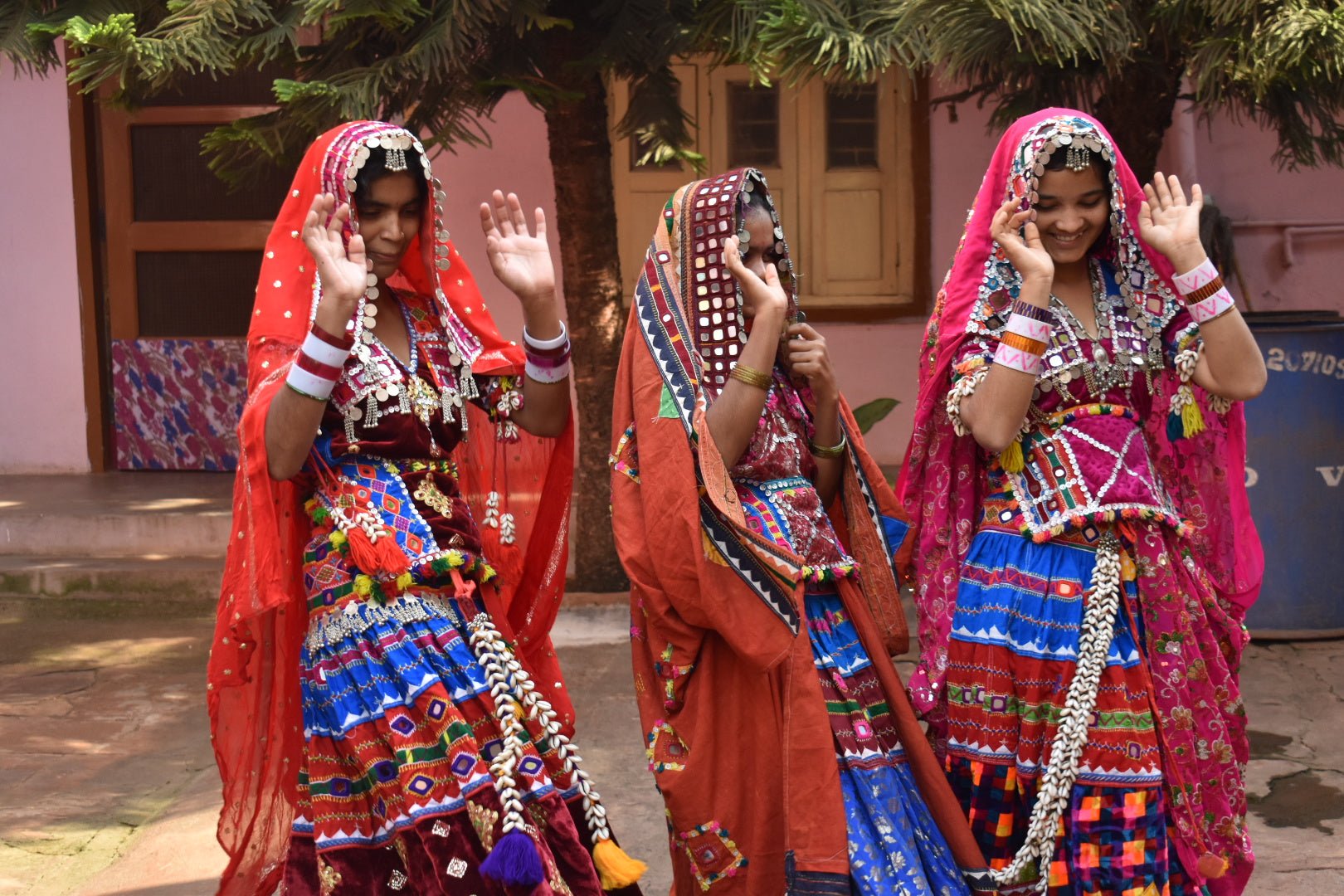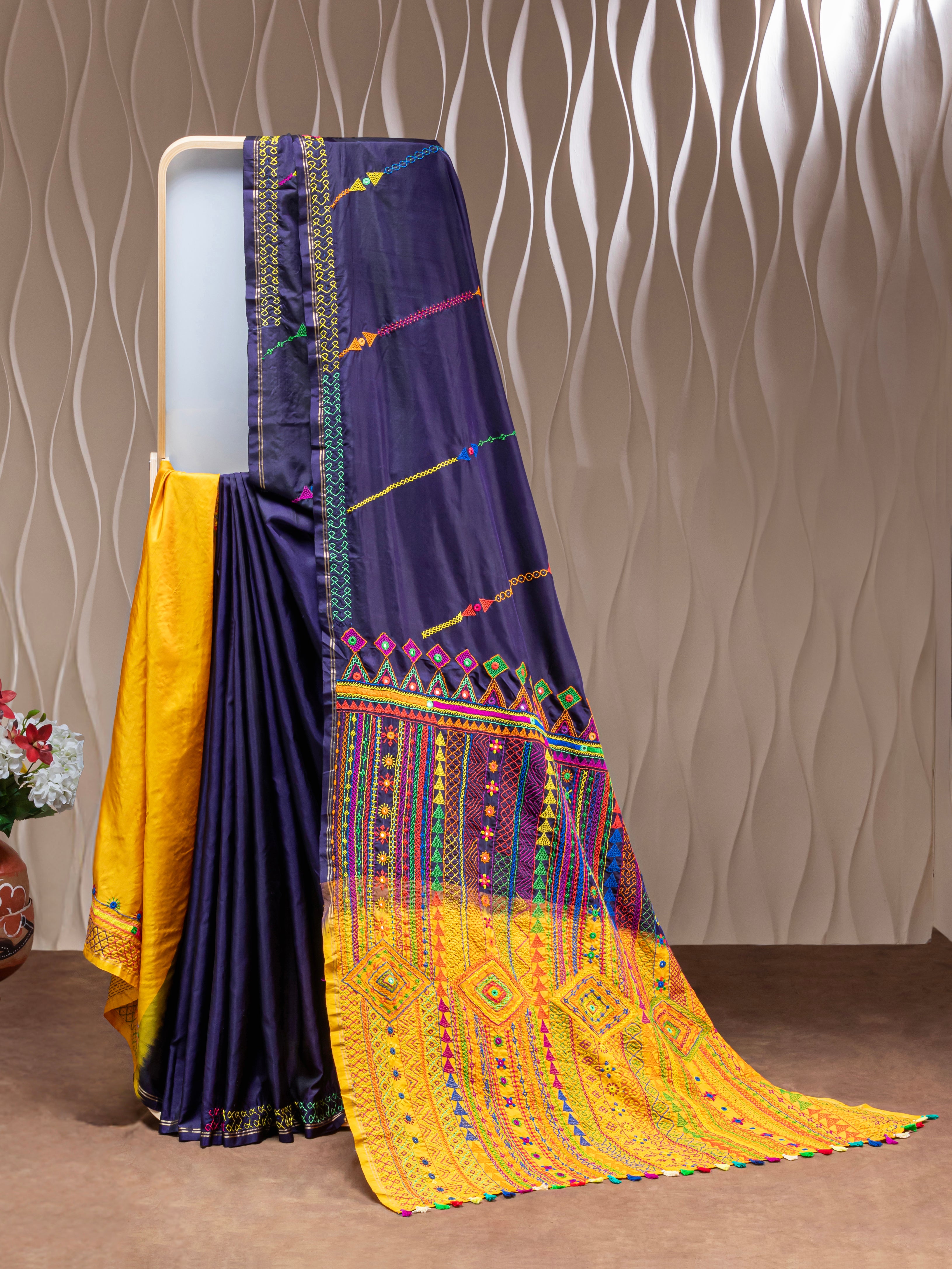
"The history of Lambani embroidery: Tracing the origins and evolution of this traditional art form":
The history of Lambani embroidery is a rich and fascinating one, dating back centuries to the nomadic Lambani tribe in India. Also known as Banjara embroidery, this traditional art form has evolved over time, adapting to new influences while remaining true to its roots.
The Lambani people, also known as Banjaras, are a semi-nomadic tribe that has traditionally been involved in trade and transportation. As they traveled across the country, they developed a unique style of embroidery, incorporating elements from various regions and cultures.
The origins of Lambani embroidery can be traced back to the 16th century, when the tribe began to settle in certain areas and develop more permanent homes. As they settled, they began to use their embroidery skills to decorate their clothing, tents, and household items. The embroidery was traditionally done by women, and it was an important part of the Lambani culture and identity.
The traditional motifs and designs used in Lambani embroidery are rich and symbolic, reflecting the culture and beliefs of the Lambani people. The motifs are derived from nature such as animals, birds, flowers and other geometric shapes. These motifs are often used to convey messages and tell stories, and they are also believed to have spiritual and protective powers.
Over the centuries, Lambani embroidery has evolved to include new influences and techniques. With the rise of globalization, Lambani artisans have been exposed to different styles and techniques from around the world, and they have incorporated these elements into their own work. For example, the use of mirrors is a recent addition to Lambani embroidery, and it is believed that mirrors were introduced to the tribe by traders.
Despite these changes, Lambani embroidery has remained true to its roots, keeping the traditional motifs and techniques, and passing them down from generation to generation. Today, Lambani embroidery is still an important part of the Lambani culture and identity, and it is also valued for its beauty and craftsmanship.
At Sooji Daara, we are proud to work with skilled Lambani artisans who are keeping this traditional art form alive. Our handcrafted Lambani embroidery cotton sarees, blouses, kutra, and accessories are not only beautiful, but they also tell a story of culture, heritage, and tradition. We are dedicated to preserving this art form and empowering the Lambani community through fair trade practices.

